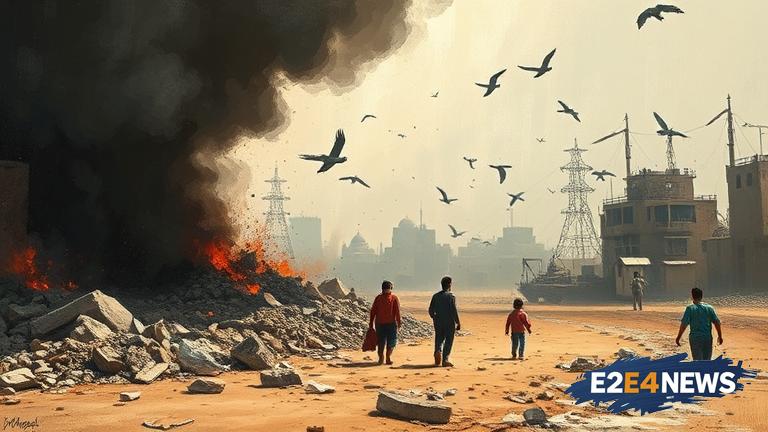The Gaza crisis has been ongoing for years, with the latest escalation resulting in the deaths of hundreds of civilians, including many children. The international community has been criticized for its response to the crisis, with many accusing world leaders of turning a blind eye to the suffering of the Palestinian people. The death of global conscience is a term used to describe the apparent lack of empathy and compassion shown by the international community towards the victims of the conflict. The crisis in Gaza has raised questions about the role of the international community in protecting human rights and preventing humanitarian crises. The United Nations has been accused of failing to take decisive action to end the conflict, despite numerous resolutions and statements condemning the violence. The European Union has also been criticized for its response to the crisis, with many accusing the bloc of prioritizing its own interests over the needs of the Palestinian people. The United States has been a key player in the conflict, with its support for Israel being seen as a major obstacle to a peaceful resolution. The Israeli government has been accused of committing war crimes and human rights abuses in Gaza, including the use of disproportionate force and the targeting of civilians. The Palestinian leadership has also been criticized for its role in the conflict, with some accusing it of failing to do enough to protect its own people. Despite the challenges, there are still many people and organizations working to bring attention to the crisis and to support the victims. The use of social media has been an important tool in raising awareness about the crisis, with many people using platforms such as Twitter and Facebook to share information and to mobilize support. However, the spread of misinformation and propaganda has also been a major challenge, with many false or misleading reports being shared about the conflict. The international community has a responsibility to protect human rights and to prevent humanitarian crises, and it is imperative that world leaders take decisive action to end the conflict in Gaza. The crisis has also raised questions about the role of the media in reporting on conflicts, with some accusing certain outlets of biased or inaccurate reporting. The use of imagery and video footage has been an important tool in bringing attention to the crisis, with many powerful images and videos being shared on social media. However, the use of such imagery has also been criticized, with some accusing it of being sensationalist or exploitative. The crisis in Gaza has also had a major impact on the mental health of those affected, with many people experiencing trauma and stress as a result of the conflict. The international community has a responsibility to support the mental health and wellbeing of those affected, and to provide them with the necessary resources and support. In conclusion, the Gaza crisis is a complex and multifaceted issue, and it requires a comprehensive and nuanced response from the international community. The death of global conscience is a term that describes the apparent lack of empathy and compassion shown by the international community towards the victims of the conflict, and it is imperative that world leaders take decisive action to end the conflict and to support the victims. The crisis has raised questions about the role of the international community in protecting human rights and preventing humanitarian crises, and it has highlighted the need for a more comprehensive and nuanced approach to conflict resolution. The use of social media and other technologies has been an important tool in raising awareness about the crisis, but it has also raised questions about the spread of misinformation and propaganda. Ultimately, the Gaza crisis is a reminder of the need for a more compassionate and empathetic global community, and it is imperative that world leaders take decisive action to end the conflict and to support the victims.





